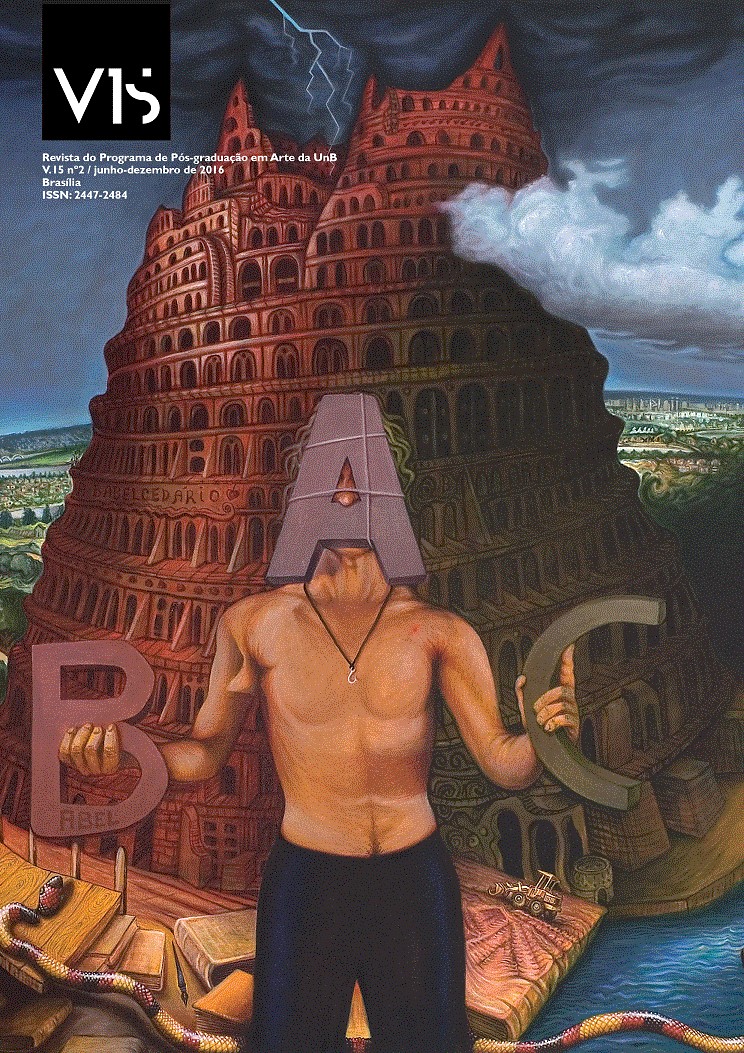Contaminação e Quarentena
Curadoria para inglês ver
DOI:
https://doi.org/10.26512/vis.v15i2.20404Keywords:
Cultural hybridity. National identity. Art historical genealogies. Cultural derivation.Abstract
In this paper art historian Michael Asbury relates the question of new publics for art with the production and dissemination of art itself. Within this context, he traces how the expectation that Brazilian art possesses an inevitable hybrid characteristic leads to a problematic and implicit ambivalence towards its relation to canonical genealogies. Equating this ambivalent character of hybridity with the notions of contamination and
quarantine he traces how the critical discourse that accompanies the art from that region has shifted from one that stresses its identitarian strategies to one of distinction from the canon. For the ‘Western’ gaze therefore it seems that the notion of hybridity acts less as a form of productive relation and more as an signifier of authenticity. Such a manufactured sense of authenticity is then problematically expected to relate to new publics for art. Asbury suggests that instead it should be through the engagement in the production, or self representation, that new publics for art may emerge.
Downloads
References
CANCLINI, Néstor Garcia. Hybrid Cultures: Strategies for Entering and Leaving Modernity. Minneapolis: Univ. of Minnesota Press, 1995.
DOS ANJOS, Moacir. Contraditório: Panorama da Arte Brasileira. São Paulo: Museu de Arte Moderna, 2007.
DUARTE, Paulo Sérgio. The 60’s. Transformations of Art in Brasil. Rio de Janeiro: Campos Gerais, 1998.
HALLWARD, Peter. Absolutely Postcolonial: Writing between the Singular and the Specific. Manchester: Manchester Univ. Press, 2001.
MALRAUX, André. Le Musée Imaginaire. Genebra: Skira, 1947.
MOSQUERA, Gerardo. “Against Latin American Art”. In: ADLER, Howells E KOTSOPOULOS (org.). Contemporary Art in Latin America: Londres: Black Dog, 2010.
RUTHERFORD, Jonathan. “The Third Space. Interview with Homi Bhabha”. In: Identity: Community, Culture, Difference. Londres: Lawrence and Wishart, 1990, pp. 207”“221.
SCHWARZ, Roberto. “Nationalism by Elimination”. In: _____. Misplaced Ideas. Londres: Verso, 1992, pp. 1-18. Tradução e organização John Gledson.




